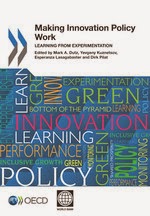Elissa Knight's 1st Prize undergraduate winning poster
It
is with great pleasure that the Boston College Libraries announce the
winners of the Fifth Annual Geographic Information Systems (GIS) Mapping
Contest at Boston College. The response this year was impressive in
the relevance, variety of topics and the attention to social justice and
environmental issues. Prizes were awarded to both graduate and
undergraduate entries with a third place tie for graduate submissions.
The first place award of a $100 Amazon Gift Card goes to:
Aakash Ahamed, Graduate student in Geology/Geophysics , graduate prize: "Know Your Air".
Elissa Knight, A&S 2015 in Environmental Geoscience,
undergraduate prize: "The Effect of Educational Attainment on Health
Insurance Coverage".
The second place award of a $50 Amazon Gift Card, goes to:
Christopher P. Soeller, Graduate student in Geology, graduate prize:
"Environmental Justice in MA: An Analysis of Income Levels and Hazardous
Waste Sites".
Christine Pang, A&S 2015 in Environmental Geoscience,
undergraduate prize: "Comparing two heating fuel types in Massachusetts
counties".
The third place tie award for graduate students of a $25 Amazon Gift Card goes to:
Oluwaseun Fadugba, Graduate student in Geophysics, graduate prize:
"Propagation of P- and S- Waves and the Variation of Peak Amplitude from
Earthquake's Epicenter Using the Mississippi 2012 Earthquake as a Case
Study".
Stephen Hilfiker, Graduate student in Geophysics/Earth and
Environmental Sciences, graduate prize: "Tsunami Risk Assessment for the
Pacific-Northwest United States"
Awards were based on map quality, use of GIS as a research tool and
originality. Special consideration was given to topics depicting social
implications of the research such as environmental issues. The awards
will be presented Wednesday, April 16
th at 3:00 p.m. in the
O’Neill Lobby by University Librarian, Tom Wall. Please join us in
congratulating the winners. The winning posters will be on display in
the O’Neill Lobby.
Special thanks to the contest judges:
Constantin Andronache, Research Associate, ITS ; Rudolph Hon,
Associate Professor, Department of Earth & Environmental Sciences;
Enid Karr, Science Librarian; Barbara Mento, Data/GIS Librarian and
Sally Wyman, Science Librarian.








